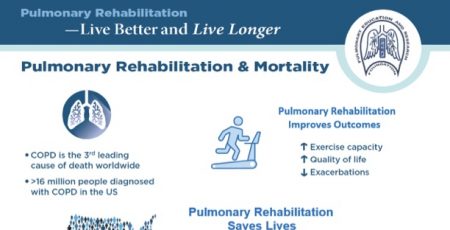16 Jul When Short of Breath, Do Not Trust Your Instincts
Be alert to the early warning signs of a COPD flare-up – increased fatigue, increased sputum and increased cough. Sometimes these symptoms are caused by infections, but it’s just as likely that they’re brought on by other causes, including in some cases an autoimmune component. At any rate, there are things you can do to prevent or minimize these episodes.
An extremely important treatment for COPD is pulmonary rehabilitation, which significantly reduces the episodes of exacerbation and increases exercise tolerance. Pulmonary rehab also is a very effective treatment for depression, it should be noted, which is important in the management of any disease.
Pacing and breathing techniques are part of pulmonary rehab, and help to control shortness of breath and make exercising easier. Pursed lip breathing combined with slow respirations, and breathing out longer than breathing in are very effective.
Slow respirations mean 16 breaths or less a minute. Research has proven that even 20 breaths a minute can cause a marked increase in air trapping, which causes increased shortness of breath and feelings of suffocation.
When you have COPD and you become short of breath, remember this important advice: Do not trust your instincts. Contrary to what you want to do, you need to slow your respiratory rate. Take slow breaths and concentrate on breathing out two or three times longer than you breathe in. This technique alone can relieve that sense of shortness of breath and prevent panic attacks.





No Comments